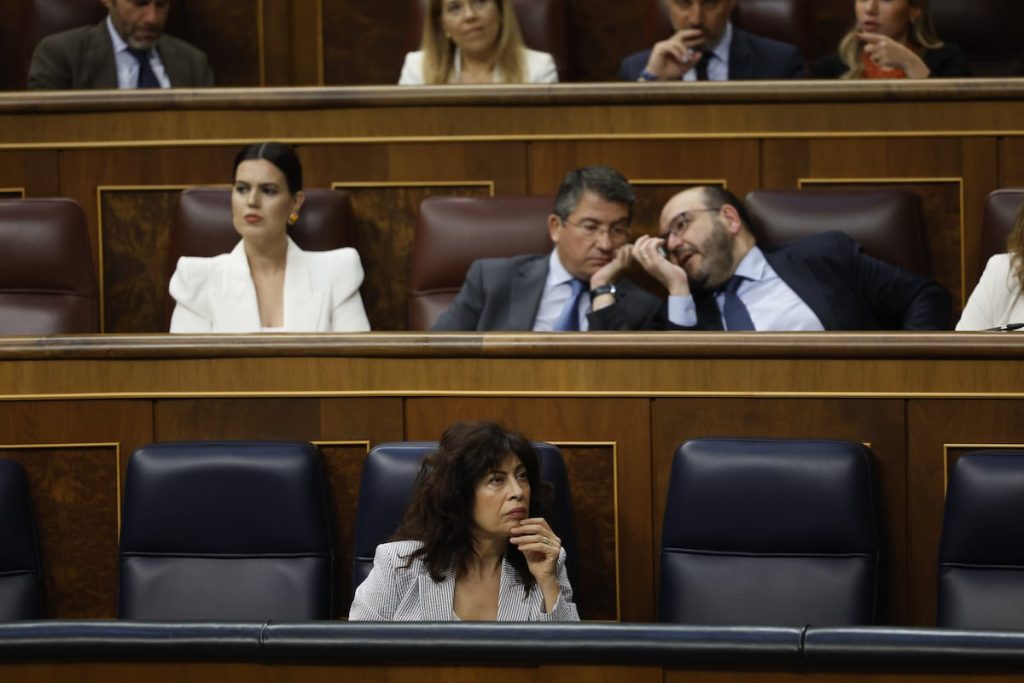The Spanish Socialist Party (PSOE) found itself isolated in the Congress for the first time since the formation of the coalition government. Their proposed law to increase penalties for pimping received sharp criticism from all sides, including their coalition partner Unidas Podemos, the opposition parties, and even the groups that supported Pedro Sánchez’s investiture. The proposal aimed to wave a feminist flag ahead of the European elections, but it backfired with a vote of 184 against, 122 in favor, and 36 abstentions. This marked the first time in almost six years that the Congress blocked a legislative initiative from the PSOE.
Critics, including Gala Pin from Sumar and Pilar Vallugera from ERC, accused the PSOE of using the issue for electoral gain and not considering the impact on sex workers. The initiative sought to increase prison sentences for pimping and penalize the leasing of spaces for prostitution, as well as those who purchase sexual services. The debate highlighted the division within feminist groups about the best approach to regulating prostitution. While some groups supported abolition, others advocated for legalization and harm reduction measures.
The criticism centered on the lack of accompanying measures to provide alternatives for sex workers and address the root causes of exploitation. Despite support from some minority parties like Coalición Canaria, the majority of the Congress, including Podemos, PNV, EH Bildu, Junts, ERC, Sumar, Vox, and PP, opposed the PSOE’s proposal. Many argued that harsher penalties for pimps without other support measures would drive sex work further underground and increase the vulnerability of marginalized populations.
The opposition parties, particularly PP and Vox, insisted that any measures targeting pimps should be part of a comprehensive law on prostitution. They accused the PSOE of opportunism and lacking a holistic approach to the issue. PP even linked the proposal to a recent case involving a man named Koldo and accused the PSOE of using feminism as a political tool. Ultimately, the PSOE’s proposal was rejected, with the opposition seizing the opportunity to deliver a blow to the government ahead of the elections.
The debate highlighted deep divisions within the Congress and the feminist movement on how to address prostitution. While some advocated for stricter penalties for pimps, others called for broader social and economic measures to support sex workers and combat exploitation. The rejection of the PSOE’s proposal underscored the challenges of navigating complex social issues in a political context, where competing interests and ideologies often clash. In the end, the PSOE faced a significant defeat that revealed the limits of their political influence within the Congress.















